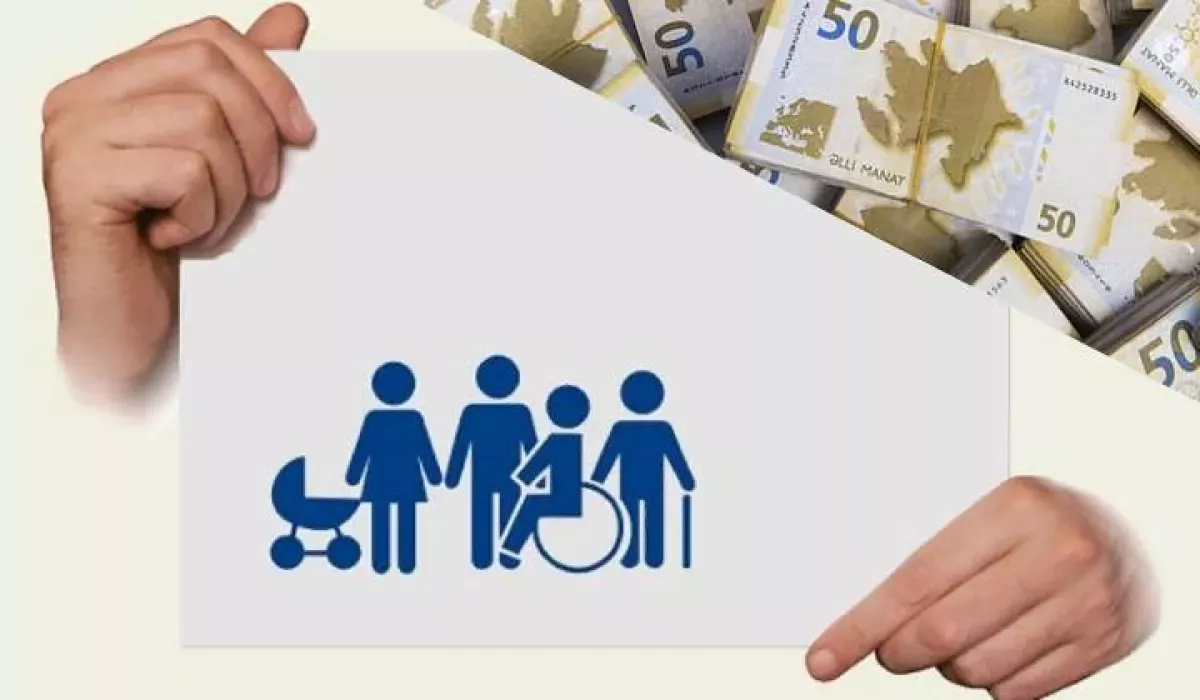The social impulse of the 2026 budget On pensions, benefits, and salaries in Azerbaijan
Consistent measures aimed at improving the welfare and strengthening the social well-being of the Azerbaijani population have long been a cornerstone of the country’s state policy. In recent years, steps to increase benefits and pensions, as well as support for families of martyrs, persons with disabilities, and large or low-income families, have become a steady focus of Azerbaijan’s budgetary policy. The next steps in this direction were discussed on November 5 during a meeting of the Milli Majlis (parliament) Committee on Economic Policy, Industry, and Entrepreneurship, dedicated to the draft law “On the State Budget of Azerbaijan for 2026.”
Social support for vulnerable groups of the population is a cornerstone of the political course pursued by President Ilham Aliyev of Azerbaijan. Overall, the president’s consistent initiatives to improve the welfare of the country’s citizens constitute one of the key components of the state’s budget expenditures.
Between 2019 and 2021, around 900 legislative and regulatory acts were adopted in Azerbaijan aimed at improving the social well-being of four million citizens. Since 2019, benefits and pensions have increased fivefold, with an additional 8.5 billion manats ($5 billion) allocated to social support packages.
In general, five large-scale social reforms have been implemented in recent years, leading to an increase in the minimum wage, social benefits, and pensions. The minimum wage has risen 3.1 times, the minimum pension 2.9 times, the average monthly pension 2.6 times, and the average monthly salary has doubled. Special attention has also been given to the social protection of families of martyrs and war veterans.
Since the beginning of 2025, a new social package has been implemented, which further raised the minimum pension, salaries, and other types of social benefits, providing additional payments covering around three million people.
The government’s projected additional fiscal revenues, including those from the non-oil sector, create favourable conditions for increasing social allocations in next year’s state budget, and discussions of this strategy are currently underway in parliament.
“Expenditures for financing labour pensions in Azerbaijan in 2026 will increase by 782.4 million manats [$460 million], or 10.9%, compared with the approved figures for 2025,” said Minister of Labour and Social Protection of the Population Anar Aliyev during a joint meeting of the parliamentary committees on Economic Policy, Industry, and Entrepreneurship, and on Labour and Social Policy. “About 81.2%, or 635.6 million manats [$374 million], of this total will go towards expenses related to pension indexation, while the remaining part will be used to fund newly assigned and recalculated pensions.”

The minister emphasised that, according to forecast indicators, the indexation rate in 2026 is expected to be around 9.2%, while the average pension amount will rise to 590 manats ($347), with the average old-age pension reaching 629 manats ($370).
According to the draft law “On the Budget of the State Social Protection Fund for 2026,” the forecast for the coming year reflects the indexation of labour pension expenditures in line with the expected growth rate of nominal wages. Based on projections, the average monthly pension amount is expected to reach 602 manats (about $354) by the end of 2025, while total pension expenditures in 2026, accounting for monthly fluctuations, are estimated at 7.99 billion manats (approximately $4.7 billion).
During the budget discussions, it was noted that, according to the Ministry of Economy, nominal wage growth in 2025 is projected at 9.2%. Consequently, the financial impact of pension indexation in 2026 could amount to 635.6 million manats (around $374 million).
Evidently, the state’s social spending burden has risen notably in recent years. Nevertheless, prudent fiscal management and growing budget revenues have helped contain risks in this area. Speaking at a parliamentary committee meeting the previous day, Minister of Economy Mikayil Jabbarov noted that, alongside higher tax revenues, contributions to mandatory state social insurance have also increased. In the first three quarters of 2025, the social insurance collection plan was fulfilled by 107.6%, with actual revenues reaching 4.7 billion manats (about $2.76 billion) — a 12% year-on-year increase.
At a joint meeting of Milli Majlis committees, Chairman of the Accounts Chamber Vugar Gulmammadov stated that no difficulties are expected in meeting the 2026 revenue targets of the State Social Protection Fund (SSPF). He added that the Fund’s expenditures would fully cover the government’s key policy priorities, without the need to draw on reserve funds. Gulmammadov also stressed that ensuring the SSPF’s sustainability is crucial, as it directly affects the stability of the broader public finance system, noting that the findings of relevant analyses have been included in the Chamber’s report.

Overall, in addition to pension indexation, further progress is expected across other areas of social policy in the near term. The 2026 state budget allocates over 17.15 billion manats (around $10.1 billion) for social expenditures, representing 41.1% of total budget spending. These funds cover wages, food procurement, pensions, social benefits, free medicines, mandatory health insurance, and other welfare measures. In 2026, social spending is projected to rise by 1.3% compared to 2025 and by 17% compared to 2024.
Recent reforms — including seven-year income tax holidays — have stimulated formal employment growth and boosted the average national salary. To sustain these gains, a gradual, income-adjusted tax increase is proposed, ensuring that low-income workers face minimal tax pressure.
Minister of Economy Mikayil Jabbarov noted that the non-oil private sector wage fund is expected to reach 10.6 billion manats ($6.2 billion) by the end of 2025 — three times higher than in 2019. The upward trend in average wages is also expected to continue next year, with the average monthly salary forecast at 1,170.8 manats ($689), compared to 1,063.6 manats ($626) in the public sector today.

An increase in the minimum subsistence level for Azerbaijan’s main socio-demographic groups is also anticipated in 2026. The new thresholds are proposed at 300 manats ($176) nationwide, 317 manats ($186) for the working-age population, 245 manats ($144) for pensioners, and 260 manats ($153) for children — representing an average rise of 5.3%. This indicator serves as a key benchmark for future adjustments in pensions, social benefits, scholarships, and the minimum wage.
Additionally, 2.83 billion manats ($1.67 billion) will be allocated from the 2026 state budget to programmes under the Ministry of Labour and Social Protection of the Population, marking a 4% increase over the current year. The provision of preferential housing for families of martyrs, war veterans, and other entitled groups will continue, with 50 million manats ($29 million) earmarked for this purpose. In the future, expanded support for large families is also under consideration, potentially including preferential retirement conditions.
“Today, the right to early retirement is granted only to women with five or more children; however, such families have become rare in modern times. I propose expanding this mechanism so that the opportunity to retire five years earlier than the statutory age would also apply to families raising three or more children,” said MP Ali Masimli, putting forward this legislative initiative during the meeting.








